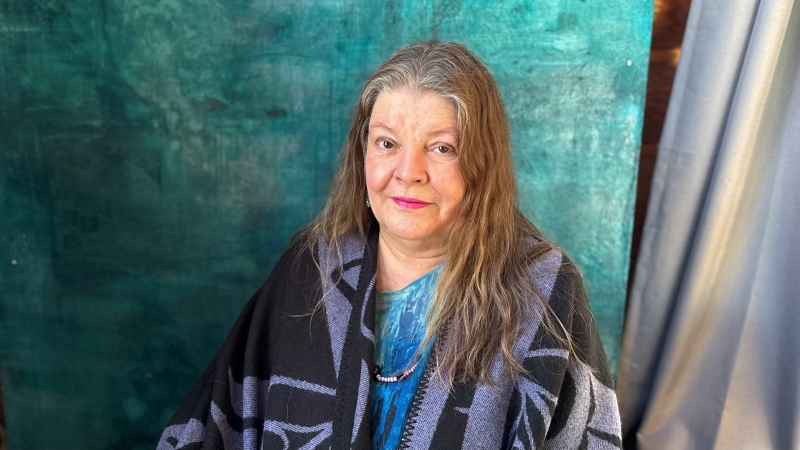Caring for our waterways
Learning from the Elders that water is the most precious of the four elements, Dr. Darlene Sanderson's professional and academic pursuits have focused on caring for and protecting waterways. Recently appointed Dr. Donald B. Rix Leadership Chair for Indigenous Environmental Health at UNBC, Sanderson will join with community-based researchers from Tl’etinqox and Qwelmínte Secwépemc Nations as the keynote presentation on Monday, launching Research Week at our Prince George campus.

After caring for the ‘waterways of the human heart’ as a cardiac nurse for 17 years, Dr. Darlene Sanderson returned to academia to pursue both a master’s degree and a PhD and now works closely with many First Nations, both locally and globally, on Indigenous issues revolving around water. Feeling blessed to be a guest on Lheidli T’enneh lands and waterways, it is a priority for Sanderson to pay respects to the ancestors of this beautiful place.
Of Cree and Métis ancestry originally from Manitoba on her mother Doreen’s side and of Doukhabor ancestry on her late father Michael’s side, she is a mother, grandmother, daughter, sister, aunt and cousin. She credits strong support from her own ancestors and Elders close to her heart, who have encouraged her to pursue water research and to care for the waterways of Mother Earth: Dr. Verna Kirkness, the late Cree Elders Sandy Beardy, Gideon McKay, and Peter O’Chiese, the late Dr. Huirangi Waikerepuru (Māori) and Mona Polacca (Hopi/Tewa/Havasupai) have guided her in her journey.
“The Elders said that water is the most precious of the four elements – water, air, earth and fire. We must protect it because water is life - we are responsible to protect it for the generations to come. Reclaiming traditional Indigenous knowledge and its practice is the key to a healthy future for all people, plants and animals.”
Sanderson received her PhD in Interdisciplinary Studies from Simon Fraser University and says she feels a responsibility to be in-service to Indigenous communities, respect local protocols and implement the United Nations Declaration on the Rights of Indigenous Peoples in her work.
Her research connects Indigenous health, education, law and the environment. Sanderson has received funding from both the Social Sciences and Humanities Research Council of Canada and the Canadian Institutes of Health Research for projects aimed at enhancing language and cultural knowledge for Indigenous youth, emphasizing the value of traditional knowledge, examining the interactions between health of the land and the health of Elders and work on proactive assertion of Indigenous water laws. She and Mona Polacca were invited to be the Indigenous Focal Points and panelists at the 8th World Water Forum in Brazil in 2018.
This past fall, Sanderson was appointed Dr. Donald B. Rix Leadership Chair for Indigenous Environmental Health at UNBC.
“I would like to express gratitude to the people and ancestors of Lheidli T’ennneh,” says the Associate Professor. “I hope to build relationships with the people of this land, to listen to what their needs are, to be in-service to their health and environmental priorities. I feel grateful for the supportive environment here at UNBC. I would like to enhance and complement the good work already underway. And I hope to build on previous research, that together, we can work to improve Indigenous peoples’ health, wellbeing, and the health of the lands and waterways.”
Recently, Sanderson has been working with community-based researchers from Tl’etinqox and Qwelmínte Secwépemc Nations to examine how the COVID-19 pandemic and associated restrictions exacerbated the impacts of climate change issues on the health and well-being of Indigenous peoples. The researchers are using Indigenous research methodologies with a strengths-based approach and are currently evaluating the outcomes.
They will describe their research experience and outline what their initial findings, including possible community-led solutions for future health emergencies, during an interactive panel presentation on Monday, Feb. 27 at 10 a.m. at UNBC’s Prince George campus. The presentation launches Research Week and is open to students, faculty, staff and members of the public.
